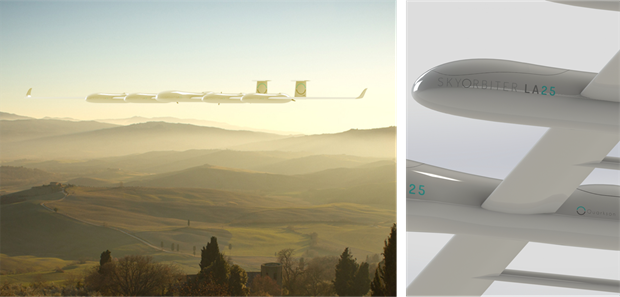Coming Soon: Solar Powered Drones Which Can Provide 100 Times Less Expensive Internet

A startup based in Portugal: Quarkson has successfully tested solar powered drones which can provide 80-100 times cheap Internet to less developed nations and far off locations where telecom companies have failed to penetrate.
Miguel Angelo, Founder of Quarkson, said during an interview, “In underdeveloped areas of the world, aircraft and technology like these can’t save people who are dying from malaria or hunger. But in the long run, the Internet connectivity they bring will help these people, especially new generations, broaden their horizons to levels similar to that seen in developed countries.”
During their testing, they equipped their test drone: SkyOrbitor (which has a wingspan of 16 feet) with WiFi transmitting device, and it was allowed to fly at a height of 330 feet or 100 meters. The drone was successful in transmitting WiFi signals on ground, where testers were able to access Internet using laptop and smartphone.
Here is a video demonstration of this test flight:
Quarkson has revealed that they have successfully built a larger solar powered SkyOrbitor which has a wingspan of 72 feet (22 meters), which can transmit WiFi signals to even broader area, and can fly even higher. Their team was not able to locate a suitable airstrip for testing this larger drone, hence had to use a smaller one to establish their proof of concept.
As per their website, their advanced SkyOrbitor code named LA65 weighs 120 kgs and can fly for 6 straight weeks without any interruption at an height of 22,000 kms. As per their calculations, this drone can broadcast WiFi or 3G/2G signals to an area of 128,495 kms as its huge wings can transmit high speed signals without any hiccups using patch antenna and WiFi (or 3G/2G) transmitter. .
Advanced version of this drones: LA75 has also been conceptualized which has a wingspan of 246 meters, and can provide Internet access to an area of more than 200,000 kms.
The drones developed by Quarkson would be equipped with energy management powered by solar energy, fully autonomous and will be running on auto-pilot. Ground control software would be powering it, and navigating it for optimal results.
Quarkson will exhibit their innovation and technology during Castelo Branco Maiden Flight SkyOrbiter Constellation Challenge in Portugal on April 30 & on May 5 in Las Vegas, Nevada, USA.
Concept wise, Quarkson’s innovation appears similar to Titan Aerospace, which was acquired by Google last year. They develop solar powered satellites, which can help to transmit Internet and assist during disasters. This joins the rank of other such innovations in the field of Internet transmission such as usage of balloons by Google and white space by Microsoft.
